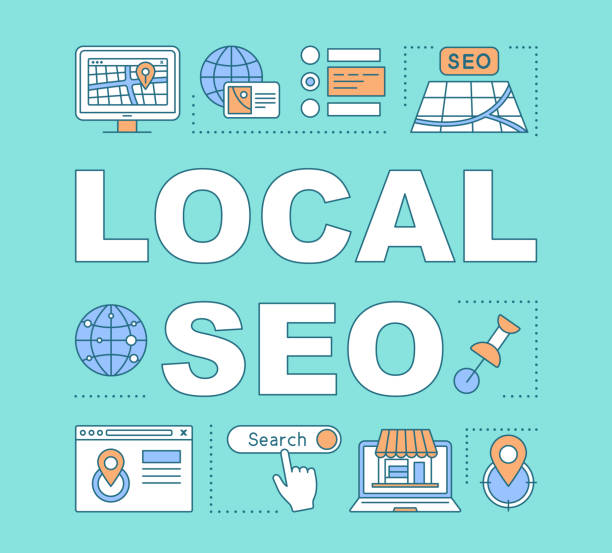
Local SEO
What is Local SEO?
Local SEO (Search Engine Optimization) is the process of optimizing your online presence to attract more business from relevant local searches. These searches take place on Google and other search engines. By optimizing for local search, you ensure that your business appears in search results when potential customers are looking for services or products you offer in your area.
Local SEO: How to Get Your Business Found in Local Searches
In an increasingly digital world, local SEO has become a crucial strategy for businesses aiming to attract nearby customers. Whether you own a restaurant, a retail store, or provide local services, optimizing your online presence for local search can significantly enhance your visibility and drive more foot traffic. This comprehensive guide will delve into the key elements of local SEO, providing actionable tips to help your business dominate local search results.
Why Local SEO Matters
Local SEO is vital for any business with a physical location or serving a specific geographic area. Here’s why:
- Increased Online Visibility: Ensures your business shows up in local search results.
- Higher Traffic and Conversions: Local searches often lead to more relevant traffic and higher conversion rates.
- Competitive Advantage: Helps you stand out from competitors in your local market.
- Trust and Credibility: Enhances your business’s credibility and trustworthiness among local customers.
There are a number of things you can do to improve your local SEO ranking. Here are a few key strategies:
Claim and Optimize Your Google My Business Listing
-
- This is the single most important factor in local SEO. Google My Business (GMB) is a free tool that allows you to manage your business listing on Google Search and Maps.
- Be sure to claim your GMB listing, fill out all of the information completely and accurately, and keep your listing updated.
- Encourage customers to leave positive reviews on your GMB listing. Reviews are a major factor in how Google ranks local businesses.
Optimize Your Website for Local Search
-
- Include your local keywords throughout your website, including your homepage, title tags, meta descriptions, and service pages.
- Make sure your website is mobile-friendly. More and more people are using their smartphones to search for local businesses.
- Get listed in local directories and online business listings.
Build Citations
Citations are mentions of your business name, address, and phone number (NAP) online. Citations can be found on business directories, local websites, and even social media profiles. The more citations you have, the higher your local SEO ranking will be.
Get Involved in the Community
-
Sponsor local events, join your local chamber of commerce, and get involved in other community activities. This will help you build brand awareness and improve your local SEO ranking.
Online Reviews and Reputation Management
Online reviews are a significant factor in local SEO. Positive reviews can enhance your visibility and attract more customers.
- Encourage Reviews: Ask satisfied customers to leave reviews on Google, Yelp, and other review sites.
- Respond to Reviews: Address both positive and negative reviews professionally and promptly.
- Monitor Your Reputation: Use tools like Google Alerts or Reputation.com to monitor your online reputation.
Local Link Building
Building local backlinks can enhance your authority and improve your local search rankings.
- Partner with Local Businesses: Collaborate with local businesses and organizations for backlinks.
- Sponsor Local Events: Participate in or sponsor local events and get mentioned on their websites.
- Guest Blogging: Write guest posts for local blogs and news websites.
Mobile Optimization
With the rise of mobile searches, optimizing your website for mobile devices is essential for local SEO.
- Responsive Design: Ensure your website is mobile-friendly and adapts to different screen sizes.
- Fast Load Times: Optimize your website’s speed for mobile devices.
- Easy Navigation: Simplify your website’s navigation for a better mobile user experience.
Create Local Content
Creating content that resonates with your local audience can improve your local search rankings.
- Local Blog Posts: Write blog posts about local events, news, and activities.
- Location Pages: Create separate location pages for each of your business locations.
- Local Case Studies and Testimonials: Showcase local customer success stories and testimonials.
Monitoring and Measuring Local SEO Success
To ensure your local SEO efforts are paying off, it’s crucial to monitor and measure your success.
- Google Analytics: Use Google Analytics to track website traffic, user behavior, and conversions from local searches.
- Google Search Console: Monitor your website’s performance in local search results.
- GMB Insights: Check GMB insights to see how customers find and interact with your business.
- Local SEO Tools: Use tools like Moz Local, BrightLocal, or Whitespark to track your local SEO performance.
Long-Tail Keywords for Local SEO
In addition to targeting general keywords that describe your business, you should also target long-tail keywords that are more specific to your location. For example, instead of just targeting the keyword “plumber,” you could target the keyword “best plumber in Delhi.”
Here’s a table to illustrate the concept of Short-tail vs Long-tail keywords with local SEO bent:
| Short-tail Keywords | Long-tail Keywords |
|---|---|
| Plumber | best plumber in [your city] |
| Dentist | [your city] family dentist |
| Restaurant | vegetarian restaurants near me |
By following these tips, you can improve your local SEO ranking and get your business found by more potential customers in your area.
Additional Tips for Local SEO Success
- Track Your Results: Use Google Search Console and other analytics tools to track your local SEO performance. This will help you see what’s working and what’s not.
- Get Regular Reviews: Encourage your customers to leave positive reviews on Google, Yelp, and other online review platforms.
- Be Patient: It takes time to see results from local SEO. But if you’re consistent with your efforts, you’ll eventually start to see an improvement in your ranking and traffic.
By following these strategies, you can take control of your local SEO and ensure that your business is the one that shows up at the top of local search results. Remember, local SEO is an ongoing process, but the rewards are well worth the effort.
